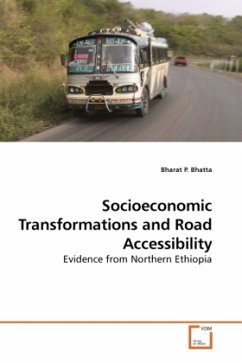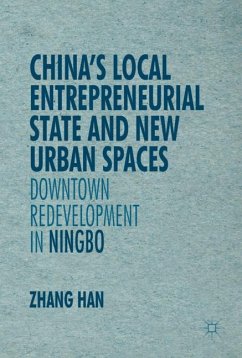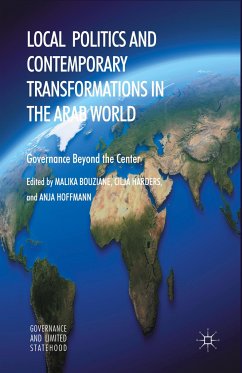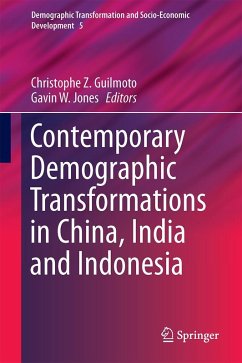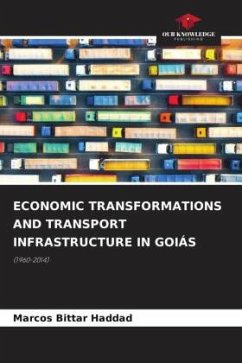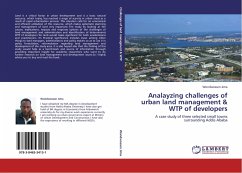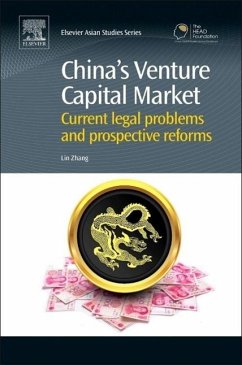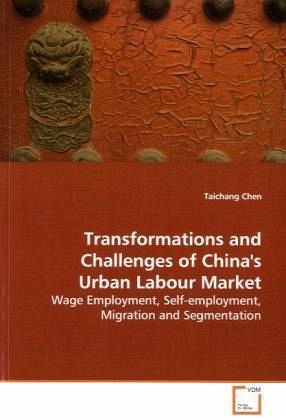
Transformations and Challenges of China's Urban Labour Market
Wage Employment, Self-employment, Migration and Segmentation
Versandkostenfrei!
Versandfertig in 6-10 Tagen
49,00 €
inkl. MwSt.

PAYBACK Punkte
0 °P sammeln!
China has experienced dramatic changes since its economic reform programme in 1978, and it is in the process of creating a functioning urban labour market that rewards workers on the basis of human capital. A 2002 nationally representative household survey is used to investigate how far a competitive urban labour market China has been created. We find evidence of both segmentation and competition between urban residents and migrants which is consistent with previous studies. In addition, there is evidence that segmentation exists across sectors for urban residents, with those currently working...
China has experienced dramatic changes since its
economic reform programme in 1978, and it is in the
process of creating a functioning urban labour
market that rewards workers on the basis of human
capital. A 2002 nationally representative household
survey is used to investigate how far a competitive
urban labour market China has been created. We find
evidence of both segmentation and competition
between urban residents and migrants which is
consistent with previous studies. In addition, there
is evidence that segmentation exists across sectors
for urban residents, with those currently working in
government agencies and institutions being the
highest-paid tier, followed by state-owned
enterprises, private-invested enterprises, those in
urban collective enterprises and self-employment are
considered as the lowest-paid tier. Although we do
not find evidence of segmentation among migrants,
our data suggest that migrants are blocked from
getting jobs in the upper-tier for urban
residents, and thus are forced to engage in self-
employment. Therefore, the urban labour market is
segmented into multi-tier and is still in a
transition stage.
economic reform programme in 1978, and it is in the
process of creating a functioning urban labour
market that rewards workers on the basis of human
capital. A 2002 nationally representative household
survey is used to investigate how far a competitive
urban labour market China has been created. We find
evidence of both segmentation and competition
between urban residents and migrants which is
consistent with previous studies. In addition, there
is evidence that segmentation exists across sectors
for urban residents, with those currently working in
government agencies and institutions being the
highest-paid tier, followed by state-owned
enterprises, private-invested enterprises, those in
urban collective enterprises and self-employment are
considered as the lowest-paid tier. Although we do
not find evidence of segmentation among migrants,
our data suggest that migrants are blocked from
getting jobs in the upper-tier for urban
residents, and thus are forced to engage in self-
employment. Therefore, the urban labour market is
segmented into multi-tier and is still in a
transition stage.



